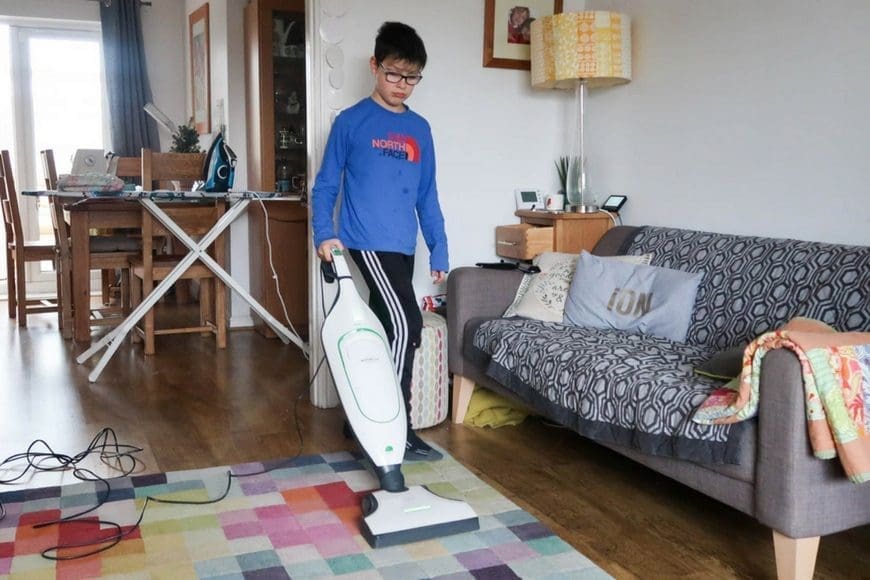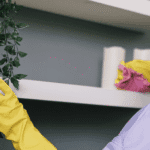Have you ever stopped to think about what happens if you don’t vacuum your room? It might seem like a small chore, but skipping it can cause more problems than you realize.
Dust, dirt, and allergens start to build up, affecting your health and comfort without you even noticing. If you want to keep your space fresh, clean, and safe, understanding what’s really going on beneath your feet is key. Keep reading to discover why vacuuming matters more than you think—and what could happen if you let it slide.

Credit: www.muminthemadhouse.com
Dust Accumulation Effects
Dust builds up quickly in rooms that are not vacuumed regularly. This buildup affects the room’s cleanliness and has hidden effects on health and comfort. Dust accumulation brings several problems that reduce air quality and increase allergy risks. It also creates a perfect place for dust mites to thrive.
Impact On Air Quality
Dust particles float in the air and make it dirty. Breathing in dusty air can cause irritation in the nose and throat. It can also worsen breathing problems like asthma. Poor air quality makes the room uncomfortable and unhealthy to stay in for long.
Increase In Allergens
Dust contains many allergens, such as pollen and pet dander. These allergens can trigger sneezing, coughing, and itchy eyes. People with allergies feel worse in dusty rooms. The more dust, the stronger the allergic reactions become.
Dust Mite Growth
Dust mites live in dust and feed on dead skin cells. They multiply fast in dusty environments. Dust mites produce waste that causes allergies and skin irritation. Not vacuuming allows their numbers to grow and makes the problem harder to control.

Credit: mashable.com
Health Problems Linked To Dust
Dust in your room is more than just dirt. It holds many tiny particles that can harm your health. Breathing in dust can cause several health problems. These issues can affect your lungs, skin, and allergies. Keeping your room clean is key to avoiding these risks.
Here are some common health problems linked to dust in your living space.
Respiratory Issues
Dust contains particles that enter your lungs when you breathe. This can cause coughing and wheezing. People with asthma may have stronger attacks. Dust can also lead to bronchitis and other lung infections. Poor air quality makes breathing hard.
Allergic Reactions
Many people are allergic to dust mites and pollen in dust. Allergies cause sneezing, runny nose, and itchy eyes. These symptoms can last for days or weeks. Dust allergies make it hard to sleep and focus. Avoiding dust helps reduce allergy symptoms.
Skin Irritations
Dust can irritate your skin and cause redness or itchiness. Sensitive skin reacts more to dust particles. Constant exposure may lead to rashes or eczema flare-ups. Washing and cleaning reduce skin problems caused by dust.
Long-term Consequences
Not vacuuming your room often causes problems that grow over time. Dust, dirt, and allergens build up and harm your health. These long-term effects can make daily life harder and less comfortable.
Dust mites and particles stay in carpets and corners. They create an environment where your body reacts badly. The air feels heavy and can cause lasting health issues.
Chronic Asthma Risk
Dust and allergens irritate the lungs. This irritation can trigger asthma attacks more often. Over time, asthma symptoms become more severe and frequent. Breathing becomes difficult and affects your daily activities.
Weakened Immune System
Living in a dusty room puts stress on your immune system. Your body works harder to fight allergens and germs. This constant battle weakens your defenses. You get sick more often and take longer to recover.
Potential Infections
Dirt and germs collect in unclean areas. Bacteria and viruses find places to grow and spread. This increases the chance of infections, like colds or skin problems. Keeping your room clean lowers these risks.
Invisible Threats In Dust
Dust in your room looks harmless. It seems just like tiny dirt particles. Yet, dust holds many invisible threats that affect your health and home. These threats grow over time if you don’t vacuum regularly. They can cause allergies, sickness, and damage to your belongings.
Dust carries more than just dirt. It contains harmful items that you can’t see. These include bacteria, viruses, mold spores, and chemical residues. Each one can create problems for your air quality and well-being.
Bacteria And Viruses
Bacteria and viruses hide inside dust. They come from skin flakes, pet dander, and outdoor air. These germs spread germs that cause colds, flu, and infections. Dust acts like a carrier that moves these germs around your room.
Without vacuuming, bacteria and viruses build up. This increases your risk of getting sick. Cleaning dust often reduces their numbers and keeps you healthier.
Mold Spores
Mold spores live in dust, especially in damp areas. They float in the air and settle on surfaces. Mold grows quietly, causing musty smells and stains. Breathing mold spores can trigger asthma and allergies.
Vacuuming removes dust and mold spores. It stops mold from growing and spreading in your room. Clean floors and carpets mean less risk of mold-related health problems.
Chemical Residues
Dust also holds chemical residues. These come from cleaning products, smoke, and outdoor pollution. Chemicals can irritate your skin, eyes, and lungs. Long exposure may lead to serious health issues.
Regular vacuuming helps remove these residues. It keeps your air cleaner and safer to breathe. Dust-free rooms create a healthier living space for everyone.
Preventive Measures
Preventive measures stop dirt and dust from building up in your room. They keep the air clean and reduce allergies. Simple habits protect your health and your home’s look. Consistent care makes your space more comfortable and fresh.
Vacuuming Frequency Tips
Vacuum your room at least twice a week. High-traffic areas need more frequent cleaning. If you have pets, vacuum three times weekly. Regular vacuuming removes dust, dirt, and allergens. This prevents buildup that can harm your health.
Choosing The Right Vacuum
Select a vacuum that fits your floor type. Use a vacuum with strong suction power. HEPA filters trap tiny dust particles well. Lightweight models are easier to carry and use. Check for attachments to clean corners and upholstery.
Additional Cleaning Practices
Dust surfaces before vacuuming to catch loose dirt. Mop hard floors after vacuuming for extra cleanliness. Wash bedding and curtains regularly to reduce allergens. Open windows to air out the room. Use air purifiers to improve air quality further.

Credit: www.nibavlifts.us
Frequently Asked Questions
What Health Risks Arise From Not Vacuuming Regularly?
Not vacuuming allows dust mites and allergens to accumulate. This can trigger allergies, asthma, and respiratory issues. Regular vacuuming reduces these health risks by keeping your environment clean and breathable.
How Does Skipping Vacuuming Affect Indoor Air Quality?
Dust and debris build up without vacuuming, lowering air quality. Poor air quality can cause discomfort and worsen allergies. Vacuuming removes particles, improving the freshness and healthiness of indoor air.
Can Not Vacuuming Damage My Carpet Or Flooring?
Yes, dirt and grit can wear down carpet fibers and flooring. This leads to stains, fading, and premature aging. Regular vacuuming preserves your carpet’s appearance and extends its lifespan.
Will Dust Buildup Attract Pests If I Don’t Vacuum?
Dust and crumbs can attract pests like dust mites and insects. These pests thrive in unclean environments and can cause infestations. Vacuuming helps eliminate food sources and reduce pest problems.
Conclusion
Skipping vacuuming lets dust and dirt build up fast. Allergies and breathing problems get worse. Bugs and germs find places to hide. Your room looks messy and feels uncomfortable. Regular cleaning keeps your space fresh and healthy. A little effort each week makes a big difference.
Keep your room clean to enjoy better air and comfort. Don’t let dirt take over your living space. Clean floors help you feel good and stay well. Simple steps protect your health and home.





